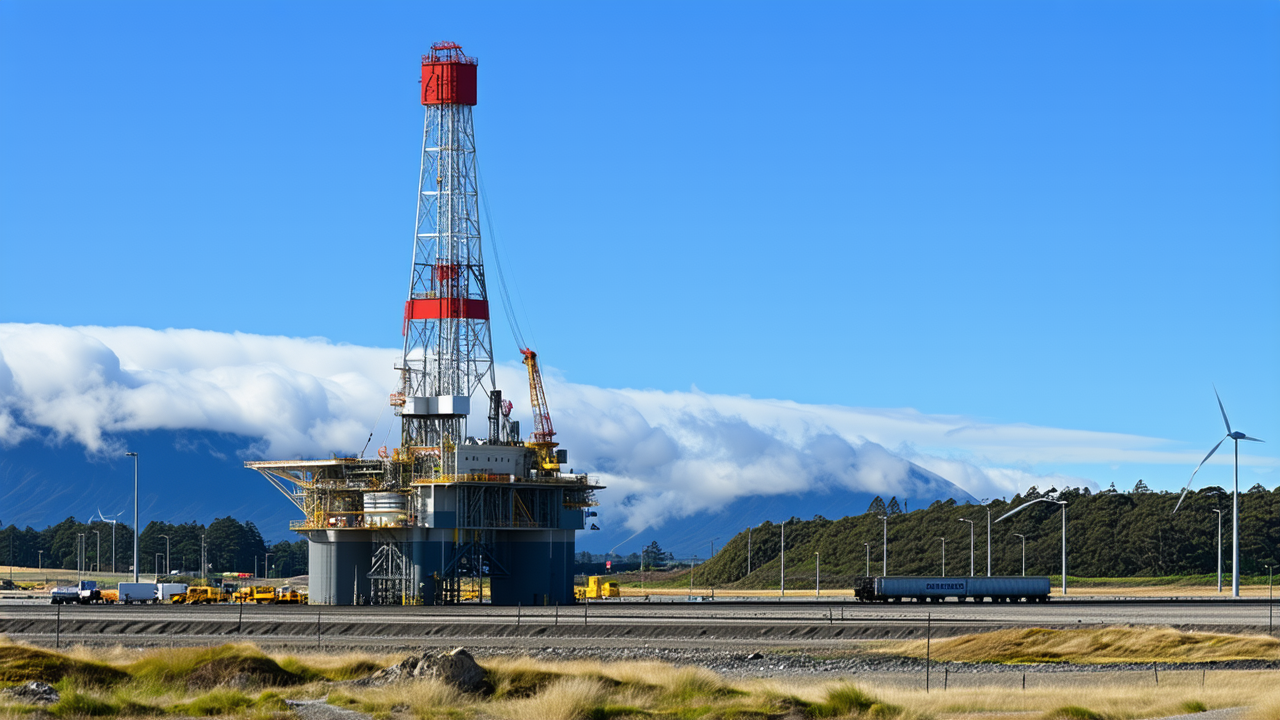New Zealand Set to Repeal Oil and Gas Ban with Ministerial Control Over Decommissioning Costs
New Zealand Set to Repeal Oil and Gas Ban with Ministerial Control Over Decommissioning Costs
After a dramatic last-minute amendment, the New Zealand government is poised to repeal the controversial oil and gas ban, granting significant powers to two ministers over the decommissioning of oil and gas fields. This decision, which has sparked fierce debate among opposition lawmakers and environmental advocates, comes amid mounting pressure to revive the struggling energy sector.
The 25-page amendment, published at 5pm on Monday, leaves opposition MPs with less than 23 hours to prepare for the debate. The change primarily focuses on the rules surrounding the decommissioning of oil and gas fields and who bears the financial responsibility for cleanup operations.
The government’s decision is partly a response to the costly cleanup of the Tui oil field in Taranaki, which was abandoned in 2019 after its Malaysian owner, Tamarind Taranaki, went bankrupt. The cleanup, which concluded just last month, cost taxpayers $293 million — far exceeding the original $343.4 million allocated for the project.
Minister of Resources Shane Jones has been a vocal advocate for the oil and gas industry’s revival, stating that the amendment aims to close a loophole in the 2021 law introduced by the Labour government to prevent the Crown from being burdened with such liabilities in the future.
“It did not seem correct or moral that the Crown should be left with that liability and the people [at fault] – with some very shrewd manoeuvrings of script – would escape liability. We have solved that problem,” Jones told the House.
The amendment replaces the current process of identifying previous permit-holders to determine who is responsible for decommissioning costs. Instead, it grants the Resources and Finance ministers the final say in such matters. This shift has been met with criticism from Labour, which argues that the government has capitulated to the oil and gas industry’s demands.
Labour’s Energy and Resources spokeswoman, Megan Woods, said the changes reflect a government that is “putting the interests of the oil and gas companies first.” She criticized the lengthy consultation process with industry stakeholders, calling it a failure to prioritize the public interest.
Labour MP Deborah Russell also raised concerns about the lack of consultation with Māori communities, noting that the amendment’s regulatory impact statement did not detail sufficient engagement with affected stakeholders.
“Those consulted preferred ministerial discretion to the current act and approach in the bill. In other words, these shadowy participants in the oil and gas industry – a dying industry – who we don’t know who they are, much prefer to be able to lobby a minister,” Russell said.
Jones, however, defended the consultation process, stating that it was necessary to engage with “risk-takers” and the providers of the country’s limited gas supply. He was unapologetic about the lack of consultation with Māori, stating that he personally conducted the necessary interviews.
The amendment has passed with the support of coalition parties, while opposition parties have strongly opposed it. The third reading, which would formally repeal the oil and gas ban, is expected on Thursday.
With the opposition firmly against the changes, industry analysts warn that investors may be hesitant to return to New Zealand without broad political consensus. The government has also set aside $200 million in this year’s budget to co-invest in new gas fields, a move that has drawn criticism from environmental groups.
In a related development, the government recently withdrew from the Beyond Oil and Gas Alliance, an international coalition committed to phasing out fossil fuels. The decision was widely criticized, including by the World Wildlife Fund, which called it an “international embarrassment.”
As the debate over the future of New Zealand’s energy sector intensifies, the government faces mounting pressure to balance economic interests with environmental and social responsibilities.
